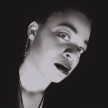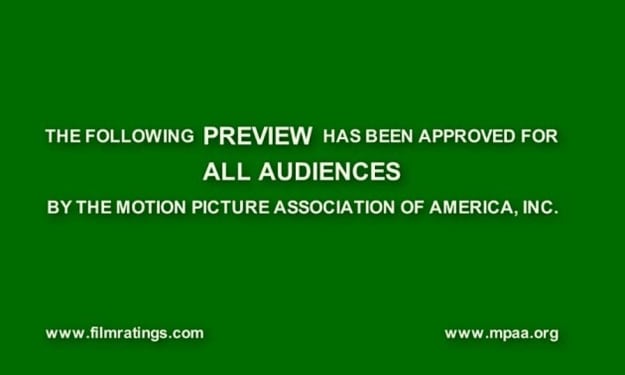How To "Level Up" Your Occult Knowledge - Part Two
A skill set guide inspired by the video game “The Council” that an occultist can apply to their personal goals.

If you're here after reading Part One, I'm glad you're here. The last part went over the Diplomatic skill set from The Council game. This part goes over the Detective skill set where logic is prioritized above everything else, which is a bit of a double-edged sword for occultists. Instead of immersing ourselves in the history and culture of various types of mysticism, we're applying what we know and admitting what we don't know to infer if the information brought to us is sensible. This encourages a more objective view on occult topics, rather than be fascinated or feel connected to them.
As you read on, you'll notice that the detective skills will overlap one another because they're meant to be interdependent. Questioning, Vigilance, Psychology, Logic, and Agility were the best skills in The Council for a more in-depth investigation of what's purposely hidden, whereas the Diplomat skills were best for understanding the characters and how to get information out of them. I rephrased the Agility skill to refer more to mental agility than physical agility so it's more relative to this topic.
Playing detective will help you to not be easily led astray by the occult or “witchtok” trends that seem believable. A few years ago, we had a lot of people misunderstanding the various folklore of the fae/faeries (and why you shouldn't summon them) thanks to witchtok.
The Detective Skill Set
Logic

Most things related to mysticism are experiential or faith-based. You can respect that while reviewing research that considers other factors that influenced those beliefs. That’s what most historians, mythologists, and folklorists do. For example, it comes to the Fae, you want to find a folklorist who knows the difference between Irish, Scottish, English, and Welsh lore (The Fae are known in other European regions too). When it comes to indigenous cultures and beliefs, you want to find a historian, preferably one who has a personal connection to that culture. Take note of contradictory, ambiguous, and subjective statements when learning about the mysticism. If you feel like you’re not good at catching contradictions and ambiguity, try some logic puzzle books or “brain game” apps to improve your deductive and inductive reasoning.
Questioning

Be critical of any occult author or advisor you come across. Do you take a snippet of their information and accept it as is? Learn how to verify the information given to you like you’re leading an interrogation. The Diplomat skills will help with historical and cultural information. Asking the who, when, and why of an occult author is incredibly important. Read 3 Questions You Should Ask While You Research the Occult Arts and Sciences if you’re not sure where to start. These may seem like common sense questions for those who have studied occultism for a while, but I strongly recommend the read for beginners.
Vigilance

There’s a difference between symbolic/historical significance and half-facts that are thrown in just to sell a product. Anyone who’s read the “Bible” series (Angel Bible, Faery Bible, Chakra Bible, etc.) know what I’m talking about. While applying the questioning skill, you need to sharpen your vigilance so you don’t fall for the same tricks repeatedly. This comes down to pattern recognition in trends and pop culture. Some topics may be alluring at first, then shallow and fleeting later on when you notice certain claims are vague or cherry-picked.
Look out for influencers who discuss cultural topics they don’t fully understand and have no background on. If prejudice is prevalent in their content, it’s not worth diving into. I bet most of you reading this don't even fully understand what chakras are. I'm one of them, yet had the hubris to write seven articles about which crystals go with what chakras (and I will rewrite them in soon).
Psychology

Our favorite fantasy books, movies, and shows like to exaggerate the “great sacrifices” that come with working with magic. Drinking dangerous potions! Slicing your hand with a knife for a ritual! All of that encourages living the drama we've seen rather than doing what the majority of occultists do: Read, study, and repeat. Getting caught up in dramatized mysticism can encourage many regrettable life choices. For example, there are a variety of herbs used by those who practice the poison path. One technique this path explores is the creation and use of “flying ointments”, tinctures (or potions) that help someone enter a trance-like state. Using herbs in drinks or smoking them was and is a common practice, but in today's time, there's no excuse not to Google something you plan to ingest beyond their metaphysical meanings. I've seen those who just started their craft go to town with burning herbs and bathing in (or drinking) essential oils. A bit of cognitive psychology and psychopharmacology will educate you on what stimulants, opiates, and more will do to your brain. It also wouldn't hurt to learn about what oils/herbs are skin irritants.
Even though the above example is more about the “brain on drugs”, various fields of psychology will not only stop you from ingesting something stupid, but also stop you from blindly believing “spiritual leaders” in these communities. Secret societies, covens, enlightenment groups, and gods knows what else can play all sorts of mind games. Studying occultism isn't like what you see on TV. Take time to understand theories and arguments on behavior, like nature versus nurture, personality, behaviorism, cognitive psychology, evolutionary psychology, psychoanalysis, and psychopharmacology. These schools of thought range from subjective to biological, and all of them will help you see human nature for what it is rather than what you thought was cool.
You're not Sabrina. You're not Sam or Dean. You're not the Charmed Ones. You're not Buffy. You're not a wizard, Harry. Stop rolling for initiative and ground yourself with psychology before taking any magical acts to heart (or drinking any potions, please).
Agility

In The Council, this skill is used for physical abilities that help the protagonist fight off others. For occultism, we’re going to make this more about mental agility. Mental agility is all about having a growth mindset, where you’re open-minded, but not to the point of gullibility. The occult and spiritual community won’t be toxic to you if you consider how subjective everyone’s experience with the supernatural is. Consider the process of nature worship inspired many indigenous and pagan beliefs, like animism and pantheism. If you think nature worship is foolishly bowing to a rock or hugging a tree, you’re missing the point of their core beliefs. Any prejudice you have, even if you feel it isn’t sensible, will always inhibit your mental agility. Don't confuse this with practices that bring physical and mental harm and suffering. Even though we know there were many beliefs that had violent practices most of us don’t agree with today, like blood letting and human sacrifice, be wise enough to be coerced into it for the sake of a spell.
Your mental agility improves when you practice observing details and the big picture; your goal should be to become more objective with enough soundness to be subjective and deciding what occult and spiritual beliefs may or may not be applicable to your own practice.
Thanks for Reading
Look forward to Part Three.
About the Creator
Enjoyed the story? Support the Creator.
Subscribe for free to receive all their stories in your feed. You could also pledge your support or give them a one-off tip, letting them know you appreciate their work.






Comments (1)
I like your tips here. It’s amazing how little critical thinking skills are utilized today. In addition, I recommend the book “The Dabbler’s Guide to Witchcraft” as it parallels a lot of points you touched on.